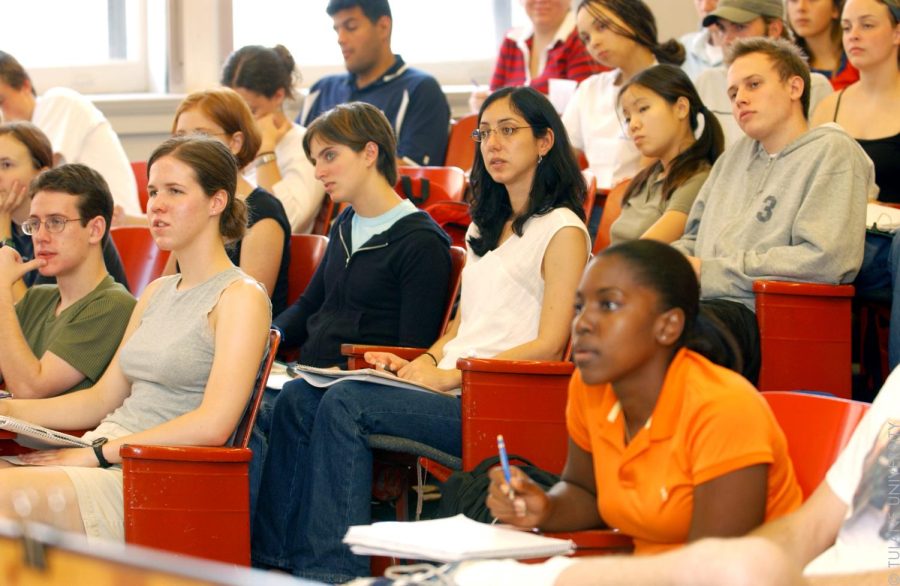CUNY-wide repeal of remedial courses will increase educational equity
February 6, 2023
CUNY’s latest move to eliminate remedial courses from its curriculum is a significant stride toward making school more accessible to students of all educational backgrounds.
Corequisite courses, which are slated to replace remedial courses, will be far more conducive to bolstering students’ academic prowess and keeping them on the track for graduation.
Remedial courses have historically acted as non-credit prerequisites for normal college courses. 74% of incoming two-year community school students were enrolled in these courses, particularly math and English.
Students faced an overwhelming challenge with the remedial structure of learning. Chalkbeat discusses how students were discouraged from attaining their degree since they would have to spend money without seeing progress, causing many to drop out.
By requiring students to be in non-credit bearing courses, sometimes for multiple semesters in a row, schools cause students to lose motivation to continue their studies, especially with pressing personal matters that might require them to work while in school.
The CUNY Task Force on Developmental Education reported that students enrolled in remedial math courses were half as likely as their peers to complete their associate degrees within three years.
CUNY began a reform program to address these rates in 2016, eventually succeeding in implementing corequisite courses in place of remedial courses. This 7-year phase out of the remedial structure supports students by allowing them to make progress toward their degree in credit-bearing courses, according to a January press release.
Students can now take the appropriate support classes alongside their degree requirements. This additional preparation for college-level classes is extremely beneficial to all CUNY students.
It is common for students to enroll in two-year programs because they were unprepared to compete for admission to private universities or because tuition was too high. They may come from low-income families or underfunded high schools with a lacking staff and curriculum.
As a result, the open admission policy and low tuition rates of CUNY’s community schools are a tremendous boost for students from disadvantaged backgrounds. It enables students from low-income families to attain social mobility, an option that they may have not had otherwise.
While the proper assessment of students’ skill level enables them to attend a classroom with the tools they need to catch up with their peers, it can be a huge detriment when remedial courses are non-credit.
CUNY’s decision to encourage education by providing additional support through the implementation of the corequisite courses will be effective in furthering mission to serve as a ‘transformative engine of social mobility.’
Additionally, getting to higher education is more challenging for people of color. Total enrollment data from the fall semester of 2019 revealed that 76.9% of students enrolled in CUNY schools were non-white. At the two-year community colleges, 84.7% were non-white.
So, assistive programs implemented in schools and areas with a high percentage of people of color are necessary to narrow the nationwide wide gap of people who attain degrees.
Remedial education was holding back such progress for far too long. A report by The Center for American Progress states that “Remedial classes increase students’ time to degree attainment and decrease their likelihood of completion.”
Additionally, low-income students and students of color were placed into remedial classes at higher rates. 56% of African American students and 45% of Latino students were enrolled in remedial courses nationwide, compared just with 35% of white students.
Black and brown New Yorkers will benefit greatly from the transition out of the remedial courses learning format. Although total enrollment is high, graduation rates in Fall 2019 were not as high.
Furthermore, supportive programs have a history of retaining students at a higher rate. College Discovery and SEEK are CUNY programs intended to support students who have immense potential but come from low-income families by providing additional academic support.
The most recent CD and SEEK students’ retention and graduation rate for associate programs was 63.8% and 78.5% for baccalaureate programs in fall 2018. However general admission students at the two-year university had a lower retention and graduation rate at 59.3%.
The individualized hands-on support in the special programs gives students a higher chance of graduating from the institution. As a result, CUNY’s seven-year phaseout of the remedial system allow students to receive support from the far more effective corequisite support system.






